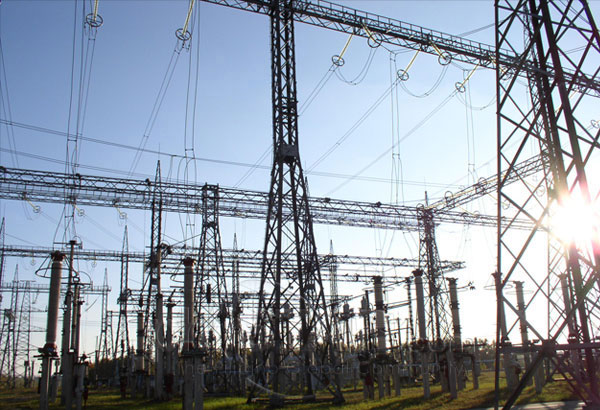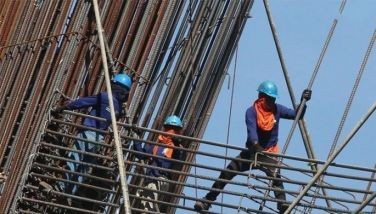Engines of growth

The Ninoy Aquino International Airport (NAIA) has become a huge cause of embarrassment for the country and worse, has become a cause of worry for travellers, including foreigners.
Last February, there were two cases of theft recorded at NAIA allegedly committed by its employees. One involved a Thai tourist losing 20,000 yen and a Chinese tourist losing a watch.
The Office of Transportation Security (OTS) launched an investigation into the unprofessional behavior of an airport employee after videos of a female screener at the NAIA giggling while frisking the departing members of the K-pop boy band ENHYPEN went viral.
Then of course, how can we forget the laglag or tanim-bala (bullet planting) scheme allegedly committed by airport personnel? In 2015, there were reports of passengers at the NAIA being accosted and fined for possessing bullets which were surreptitiously placed inside their bags.
Then there was the New Year’s Day glitch where hundreds of flights were either cancelled or delayed, affecting around 65,000 passengers, due to power outage and technical issues in air traffic control, after one of the uninterruptible power supply (UPS) systems failed to operate, with the commercial and standby power failing to work as well.
And I haven’t started discussing the perennial flight delays at NAIA, just because its runway is operating beyond its capacity.
It’s just a matter of time before our government will have enough political will to close down NAIA for good, and let newer airports take over.
In the meantime, however, Transportation Secretary Jaime Bautista revealed that they have tapped the Asian Development Bank to help look for the most qualified operator for NAIA which will manage its operations and maintenance.
Public-private partnerships (PPPs) have long been considered a driver of growth and development by mobilizing private resources for public good. These partnerships help free up resources that can be allocated for other projects or supplement the finances of projects which do not receive enough budget.
Aside from being more cost-effective, allowing a private company to construct and operate public facilities brings in expertise and innovation that ultimately ushers in better efficiency and service quality.
Take the Mactan-Cebu International Airport, which is under a 25-year build-operate-transfer partnership between the government as the owner and GMR Megawide Cebu Airport Corp. (GMCAC) as private operator.
Since the turnover in 2014, tourist capacity, services, and facilities have consistently improved. The airport grew its passenger traffic by at least 50 percent in just four years and is already expected to recover its pre-pandemic foot traffic this year.
If done correctly with safeguards by the government, this move to privatize NAIA’s operations may be our best bet for the airport to finally catch up with its counterparts here and abroad.
Need for action
As early as last year, government energy officials already projected a difficult power situation in Luzon and Visayas, especially during the summer months, given the tight supply situation and elevated fuel prices.
The Department of Energy’s Electric Power Industry Management Bureau in fact expects the occurrence of 17 yellow and three red alerts for 2023, when capacity falls below required regulating reserve. This still excludes unplanned power plant outages.
In August last year, Sen. Raffy Tulfo, who chairs the Senate energy committee, filed a resolution to hold an inquiry in aid of legislation on the matter of rising power prices.
According to him, he will find a solution to the perennial problem of power outages, even as he pointed out that it is about time that a review be conducted on the performance of cooperatives especially during brownouts.
He said that his committee would summon past officials of the Department of Energy, electric companies, and other concerned agencies to shed light on why during their watch, no solutions to the problem were given.
Tulfo added that local government units should have also helped their constituents raise the issue to concerned authorities.
What has happened since then? What has Tulfo’s committee achieved in the last nine months?
There is talk that traders, some allegedly controlled by some power producers themselves, set up companies to trade electricity, to buy from the market low and then sell retail high.
If there is excess capacity, they buy the electricity at a low price, then sell them high later on. The committee needs to find out if the market is being manipulated.
There are also those who say that there are some power producers taking advantage of high fuel costs to unduly raise their prices.
It is also being said that some power producers do not give a clear and transparent accounting of their contracted capacity or electricity sold under supply contracts with clients, usually big manufacturers. These contracts, and their prices, are usually negotiated by the power producer and the client.
If clients balk at the high price and walk away, the power producer can sell the electricity to the spot market, where it can be picked up by trader and then resold at an even higher price. By then, clients may have no other choice but to buy from the trader at the higher price.
The other thing is if a power plant shuts down, undergoes maintenance, or simply opts not to sell, then a shortage occurs, which drives up prices as well. In this sense, electricity is also like onions and rice. Artificial shortages can in fact be created to drive up prices.
That’s free market for you, since power rates are deregulated, in a sense. But when unscrupulous groups opt to manipulate the market, they can. And they can jack up power prices easily. Consumers then bear the burden of higher prices for electricity.
While this may all be rumors, the Senate energy committee should dig deeper to find out if the high power prices are just the result of the supply-demand issue or if there is indeed manipulation of prices.
The country’s manufacturing sector is hurting from high cost of electricity. Foreign companies do not want to locate here because of our high power prices and unstable supply.
Tulfo should be able to squeeze the truth out in the same way he did when he was still hosting public service programs on radio and television. But can he? Or will he?
With all his bravado as a broadcasting personality before, he is unusually silent now.
For comments, e-mail at [email protected]
- Latest
- Trending




























